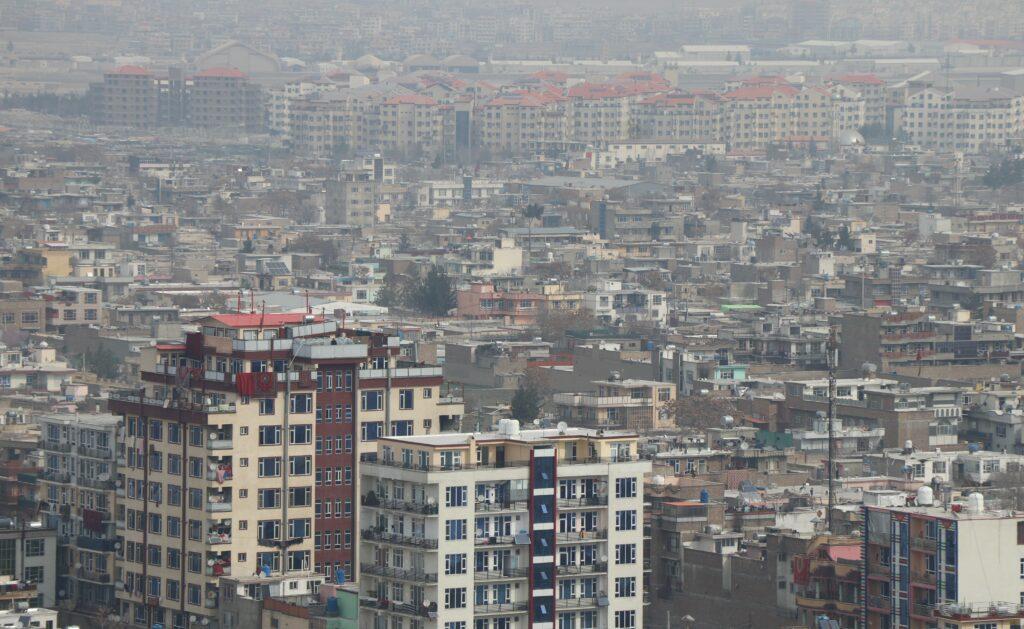KABUL (Pajhwok): Some residents of Kabul say they were satisfied with electricity provision in summer, urging officials to ensure that prolonged power cuts do not occur in upcoming winter.
Meanwhile, Da Afghanistan Breshna Shirkat assured that outages will be reduced.
Jumaddin Mushfiq, a resident of Taimani area of Kabul, told Pajhwok Afghan News, “Fortunately, compared to previous months, electricity outages and issues have improved to some extent, and we view this positively, hoping that this situation will get even better in the coming months.”
He described electricity as an essential need for the city’s residents and noted that excessive blackouts in any season cause significant problems for people.
He expressed hope that in the upcoming winter, prolonged outages will be prevented.
Saeeda Yousafzai, a resident of Baharistan in Kabul, also expressed her satisfaction with the reduction in power cuts over the past month, stating, “The problems with electricity have been addressed to some degree.”
She urged officials to continue efforts to prevent power suspensions in the upcoming winter.
Saeeda regarded electricity as a necessity for the people, saying, “We face many difficulties; for instance, in hot summer, we cannot use fans in our classrooms… and during cold winter, when we need heaters, we unfortunately face problems in this regard as well.”
Meanwhile, Hussain Ali, a resident of Qala-i-Fatehullah in Kabul, said, “Currently, the electricity is good; in the past, we only had electricity for four hours in 24 hours, but now, thankfully, we avail the facility for about twenty days, it has been quite stable.”
He runs a store selling electrical appliances and noted that when there was no electricity; business was severely affected because customers needed to test the appliances.
Amrullah, another resident of Qala-i-Fatehullah, added, “Right now, the electricity is good; it is the government’s kindness, our work is progressing, and outages have decreased, alleviating people’s problems.”
He referenced excessive outages last summer, adding, “Without electricity, life cannot go on; power outages are like a graveyard.”
He urged the Islamic Emirate to further reduce outages in the upcoming winter so that families, especially those with no means to heat their homes, can at least use electric heaters.
On the other hand, Abdul Jabbar Safi, head of the Afghanistan Industrialists’ Union, pointed out that the industrial sector faced challenges due to a shortage of electricity, stating, “In the industrial parks, we have electricity from 4am in the morning until 3pm in the afternoon.”
He called on the power utility to address this issue, noting that the imported electricity alone was insufficient.
He added: “The project with Afghan Invest to supply 500 kilowatts is crucial; we need to expedite this project to ensure that all additional electricity from Turkmenistan is transferred to Afghanistan. Furthermore, all small and large projects that generate electricity from solar, water, and wind should be encouraged to invest in this sector for economic benefit.”
It is noteworthy that officials from the Islamic Emirate signed an agreement last year to complete the 500-kilovolt power transmission line from Shiberghan to Dasht-i-Alwan with Afghan Invest, which is expected to facilitate the transfer of cheap, quality electricity from Turkmenistan to Afghanistan and significantly alleviate the electricity shortage in the country.
Meanwhile, Hikmatullah Maiwandi, spokesman for DABS, said the electricity situation had been changing recently, noting, “The weather has normalized, and maximum electricity consumption has decreased; therefore, the supply of electricity has increased from 55 to 75 percent compared to the summer season.”
He emphasized, “When weather warms up, people use various electric devices to cool their homes and offices, which increases consumption. If one air conditioner is turned on in one house, ten other houses may lose power; conversely, if one air conditioner is turned off, ten homes can receive normal electricity.”
When asked whether electricity availability would improve in the upcoming winter, he replied, “We are working on various strategies to manage electricity outages in the coming winter, including thermal power generation, for which we have procured fuel that will be activated in emergencies.”
Maiwandi assured that the power utility strives to increase electricity supply from domestic sources to avoid future electricity issues.
He explained the current electricity distribution schedule, stating, “At present, electricity distribution is categorized into three groups: first, government offices, ministries, embassies, hospitals, and educational centers receive electricity 24/7; second, factories and industrialists receive more than 18 hours; and third, residential areas receive less than 18 hours of electricity.”
sa/ma








GET IN TOUCH
NEWSLETTER
SUGGEST A STORY
PAJHWOK MOBILE APP